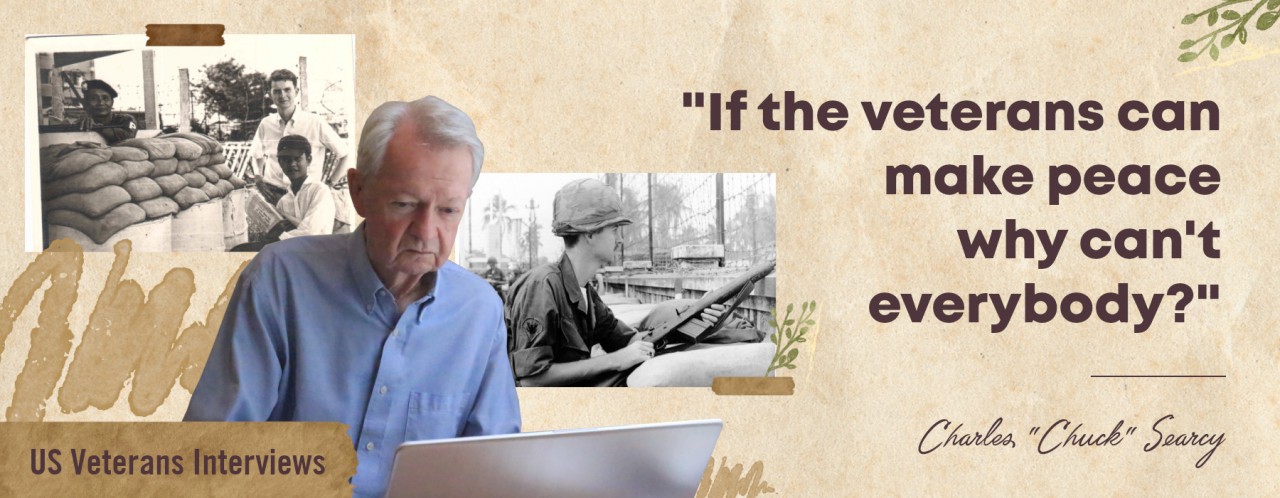 |
| What inspired you to return to Vietnam? When I departed the war zone of Vietnam in June 1968 I knew that someday I would return, hopefully in a time of peace. In 1992 an old army buddy and I came back as tourists. We traveled the whole country and were amazed at the warm welcome from the Vietnamese people who seemed to have forgiven us for the terrible pain and suffering we caused in the war. I realized then I wanted to come back and find some way to help the Vietnamese people recover from the tragic war the US had caused.
I got the chance in 1995 when the Vietnam Veterans of America Foundation asked me to come here and set up a humanitarian project to help disabled children, amputees, or others mobility-impaired by polio, cerebral palsy, and other diseases that led to expanded involvement in war legacies of explosive ordnance and Agent Orange, which have affected the lives of millions of people. That involvement has kept me here for the past 27 years. What were your first impressions of postwar Vietnam? How have you adjusted to living in Vietnam? Postwar Vietnam in 1992 was very different from Vietnam today. People were still suffering, they were struggling to recover from the devastation and the personal hardships of war. Vietnam was cut off from other parts of the world because of US sanctions, an embargo that prevented many goods and services from being imported or exported. Yet the Vietnamese people were resilient, determined, and optimistic. They were always smiling and confident of a better future for their children. I have always had great admiration and respect for the people of Vietnam, which has only strengthened over the years. The younger generation also gives me confidence that some of the mess that our older generation has created can be corrected and the world might be rescued by inspiring young people. I’m lucky to have older friends and younger friends who span all age groups. |
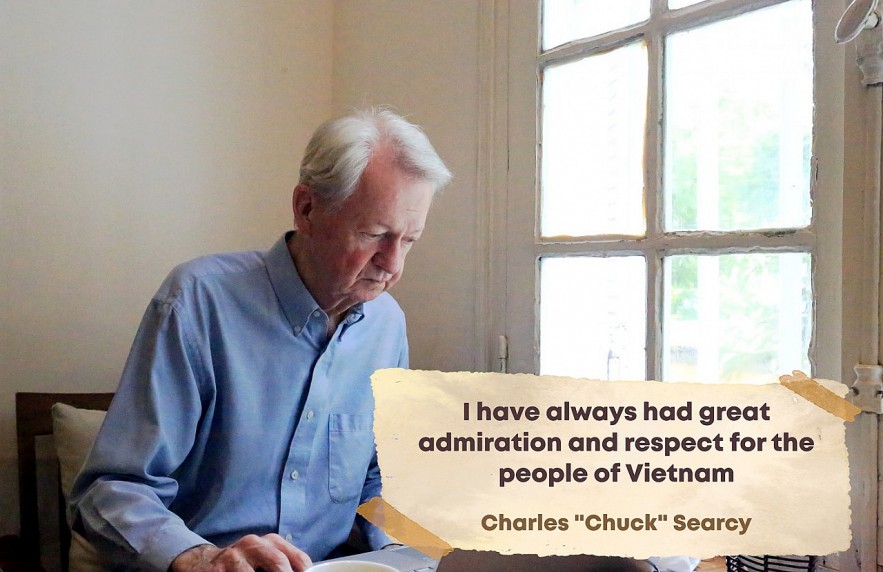 |
| How did Vietnamese people respond to Americans returning to the country? When I first came here, I expected I might encounter some hostility. I waited but nothing happened. No one has uttered a word to me in hostility. Why have the Vietnamese been so welcoming to Americans? It is a remarkable trait. They are so forgiving. They don't dwell on the past. They look at today and tomorrow. Foreigners in general can learn a lot from the Vietnamese outlook on life, forgiveness, and reconciliation.
In your opinion, what factors allowed Vietnam and the US to reconcile? It was inevitable that Vietnam and the US would reconcile because there were too many people of goodwill who were determined to see the injustices and the bitterness of the past replaced by true understanding and friendship. There were many individuals on all sides who contributed to that long process. Veterans on all sides opened doors of understanding that permitted former “enemies” to embrace and find personal peace and reconciliation. Countless ordinary “people’s ambassadors” made peace, reconciliation, and normalization of relations possible. What projects have you completed as the President of Veterans for Peace? Veterans For Peace works hand in hand with projects such as RENEW, and in support of the Friendship Village in Hanoi, orphanages and schools in various provinces, the Tu Du Hospital “peace village” for Agent Orange orphans who are victims of dioxin’s consequences, flood and storm relief in Quang Tri and Quang Ngai. We have given away more than 200 bicycles to poor children mostly in rural, ethnic minority areas so the children can travel to schools more easily. We have cooperated with Vietnamese veterans in a few special programs recognizing contributions and sacrifices of veterans, such as special events at the Hoa Lo prison museum. |
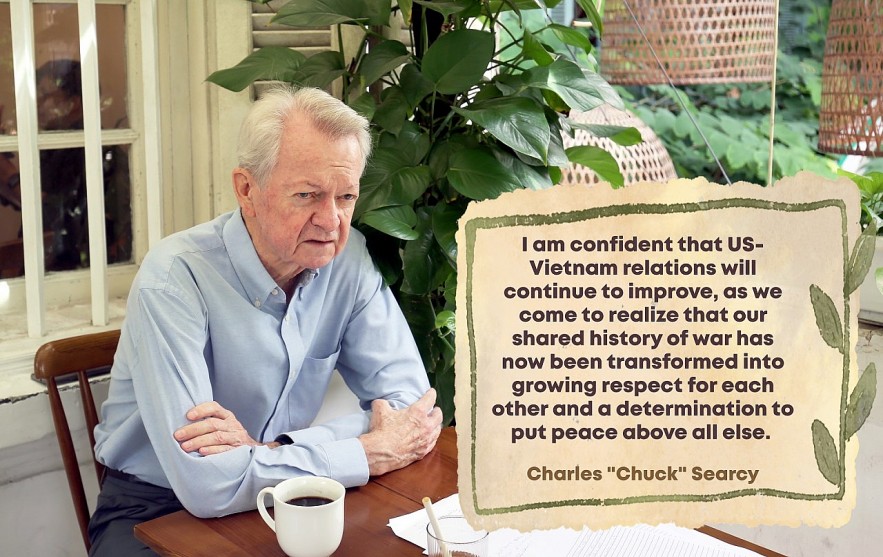 |
| How do you think Vietnamese and American people can work together to better US – Vietnam relations? I am confident that US-Vietnam relations will continue to improve, as we come to realize that our shared history of war has now been transformed into growing respect for each other and a determination to put peace above all else. We need to work together, talk together as brothers and sisters, and to listen and learn from each other. We still have much of mutual benefits that we can experience together. What is your hope for the next generation of the two nations? I hope they can do a lot better than we did. I hope they can cope with the terrible legacies of war and environmental challenges. We have made things worse. After 27 years of reconciliation, we have learned that peace requires a lot of work, effort, attention, and effort. We were too quick to go to military options. It is never the best approach. Peace is. "If the veterans can make peace, why can't everybody." These are words from Vietnamese staff from Quang Tri, all born after the war. They take the responsibility we dump on them. They help kids stay safe from losing limbs, taking the burdens we left from them. I learned a lot from the Vietnamese people and culture. They talk about how important freedom and independence are. They mean it in the same way. It is a genuine expression from their heart. They work to have long-term peace in the world. In 1975, I thought at least we learned something from the experience. How wrong I was. Most built area engagements are unnecessary. To achieve peace, we must work on it every day and learn from each other. |
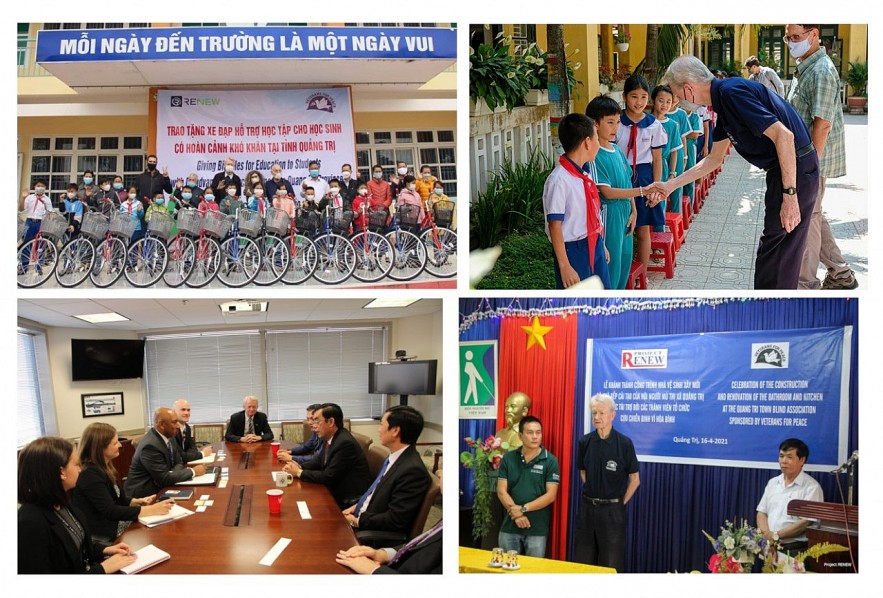 |
| If you were to send a peace message to anyone, who would you send it to and what would the message be? My priority today and always has been inventing the US government that we need to do more to promote peace everywhere in the world, to stop military interventions in other countries, and to realize that other people have their own lives to live. We, the Americans, do not necessarily have a better way of life to offer them. People can develop in their own ways and determine their own futures. It is a matter of listening to others and showing them our respect, that is the key to peace. |
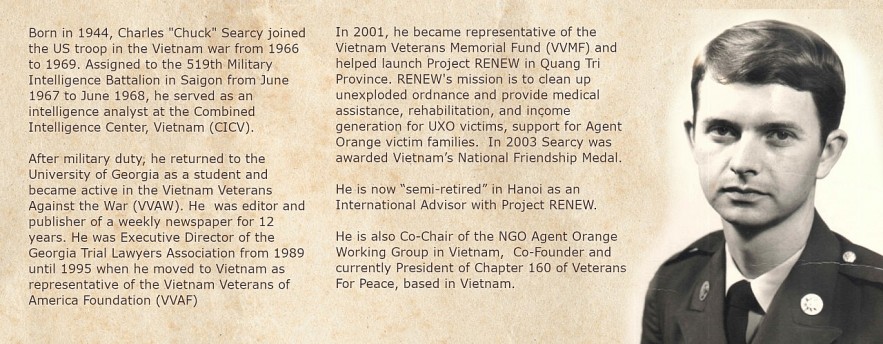 |
| __________ Interview: Glen MacDonald & Zoey Nguyen Graphic: Valerie Mai |